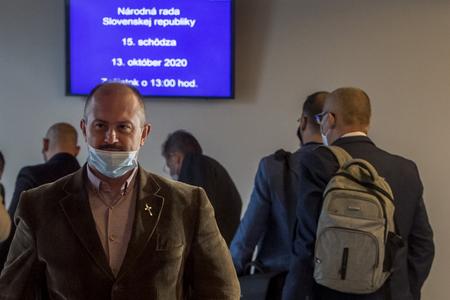This interview was produced in partnership withReporting Democracy, a cross-border journalism platform run by the Balkan Investigative Reporting Network.
“Do not forget that those who claimed you have a metal chip inside you after vaccination, today claim that Russian soldiers have found ominous American biological laboratories in Ukraine.”
This is just one of several warnings issued over the past month by the Slovak police's official Facebook page dedicated to debunking hoaxes.
The police warn readers that these profiles and websites are attempting to persuade people about the necessity of the Russian invasion and the spurious justification for it. In doing so, they are creating information chaos, setting people against each other and destroying solidarity with the millions of Ukrainian refugees.
Slovaks have long had the dubious distinction of being the most prone in Europe to believe in conspiracy theories and disinformation, which might explain the prevalence of such sites targeting the Slovak information space.
Spurred by warnings from activists and the Slovak Information Service (SIS), the country’s main intelligence service, at the outset of the war in Ukraine the Slovak parliament passed a law that allows the authorities to block disinformation websites temporarily. And in the first month of Russia’s invasion, the National Security Authority made four such websites inaccessible.
The first to be turned off was Hlavné Správy. Shortly after, one of its contributors, Bohuš Garbár, was chargedwith conducting espionage activities for Russia.

However, other websites and Facebook profiles, many of which in the past have spread disinformation about COVID-19, are still operating and spreading disinformation on the war in Slovakia’s eastern neighbour.
“The same people who invested time and energy into spreading hoaxes and disinformation about COVID and the pandemic a few weeks ago, today denigrate [Ukrainian President Volodymyr] Zelensky, admire [Russian President Vladimir] Putin and approve of the aberrant Russian invasion of Ukraine,” Tomáš Kriššák, an expert on disinformation who works with Gerulata Technologies, tells The Slovak Spectator.
Observers of the disinformation scene agree that many such Facebook profiles and sites were not created only when the pandemic hit, but rather had been operating for some time, feeding on the same topics that were also viral in the mainstream media.


